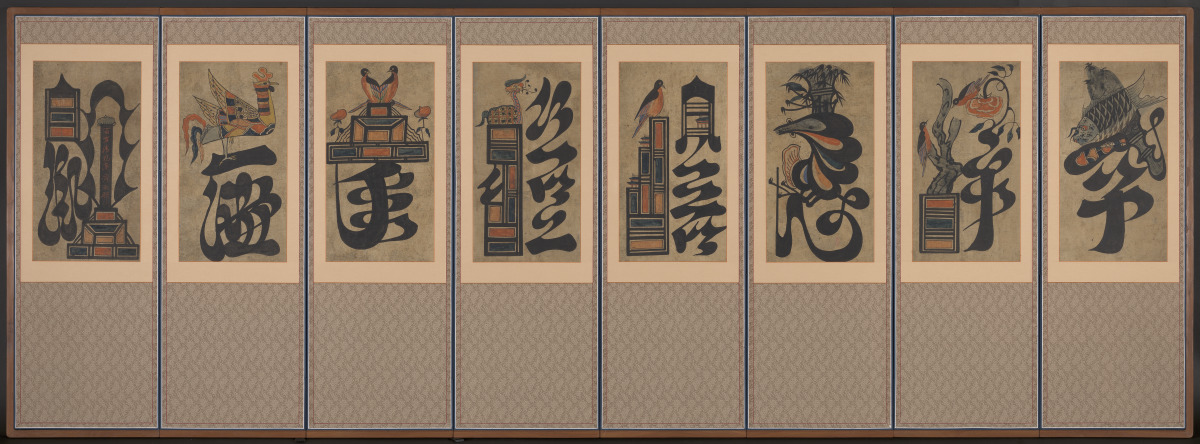
Ideographs of Eight Confucian Virtues (Munjado) (Translation)
효제문자도팔곡병풍 조선후기 지본 (Primary Title)
孝悌文字圖八幅屛風 朝鮮後期 紙本 (Primary Title)
Unidentified (Artist)
Written in stylized script, the eight Chinese characters read, from right to left: filial piety, brotherhood, loyalty, trust, propriety, righteousness, integrity, and sensibility. Known as the “eight virtues,” these words convey the moral, social, political, and philosophical beliefs integral to Confucianism, which influenced East Asian culture and history for thousands of years. Such screens first appeared in 18th-century Korea and were furnished in the gathering space of scholars and officials, a ritual practice that continued through the early 20th century.
Joseon dynasty (1392-1910)
None
None
孝悌忠信禮義廉恥 (Korean: 효제충신예의염치; English: filial piety, brotherhood, loyalty, trust, propriety, righteousness, integrity, and sensibility)
Arthur and Margaret Glasgow Endowment
Image released via Creative Commons CC-BY-NC
Some object records are not complete and do not reflect VMFA's full and current knowledge. VMFA makes routine updates as records are reviewed and enhanced.
